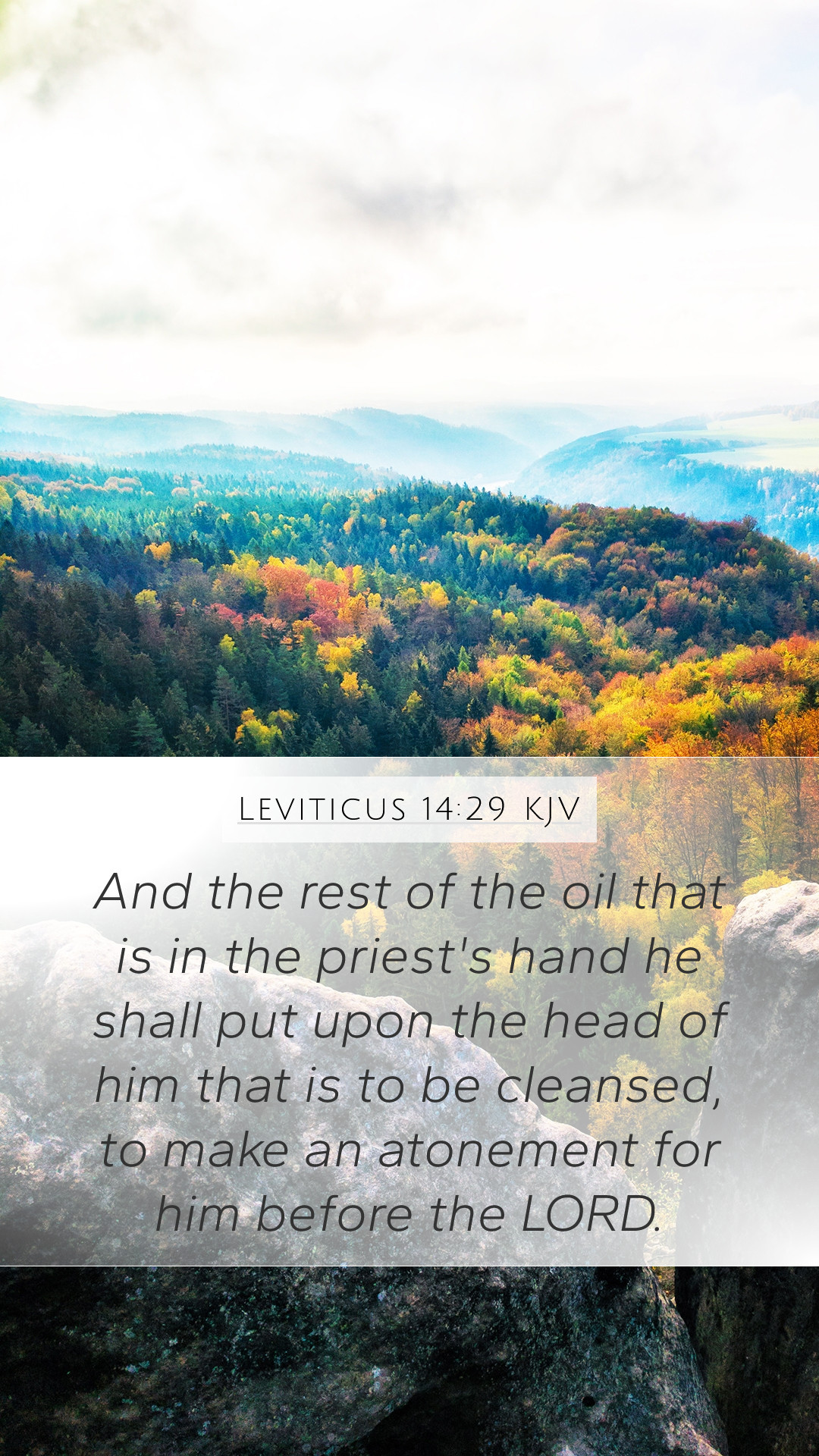Understanding Leviticus 14:29
Bible Verse: Leviticus 14:29
"And the rest of the oil that is in the priest's hand he shall put upon the head of him that is to be cleansed; and the priest shall make an atonement for him before the Lord."
Summary of Bible Verse Meaning
Leviticus 14:29 is a key verse in the ritual of cleansing a leper, emphasizing the role of the priest and the symbolic use of oil in the process of atonement. The act of anointing the cleansed individual signifies their restoration and acceptance back into the community of God's people, as well as their reconciliation with God. This verse also highlights the importance of the priest's role in mediating between God and the people, facilitating the necessary atonement.
Bible Verse Interpretations
-
Matthew Henry:
Henry emphasizes that the oil represents the Holy Spirit and signifies the blessing and empowerment of God upon the individual who has been made clean. The priest’s actions illustrate not only the physical restoration but also a deeper spiritual renewal.
-
Albert Barnes:
Barnes notes the significance of the oil as a means of consecration and healing, linking it to other biblical instances where anointing with oil signifies God’s favor and blessing. He highlights the ongoing need for atonement and the role of the priest in the continual practice of these rituals.
-
Adam Clarke:
Clarke remarks on the ceremonial aspects of this cleansing process, indicating that it served both as a physical act of healing and as a ritual that pointed to future atonement through Christ. The priest's intervention is essential, illustrating that reconciliation with God involves a mediator.
Detailed Analysis
The act of putting oil on the head of the individual cleansed by the priest demonstrates the comprehensive nature of healing that encompasses both physical and spiritual dimensions. This verse showcases the nuanced rituals of the Levitical law aimed at restoring individuals to a state of holiness.
In the context of this chapter, leprosy symbolizes sin and separation from God. Thus, the ritual of cleansing acts as a foreshadow of Christ's ultimate sacrifice, where true cleansing from sin is achieved. The pouring of oil represents the anointing of the Holy Spirit, essential for empowering the believer.
Significance in Bible Study
For those exploring bible verse meanings and bible verse interpretations, Leviticus 14:29 serves as a crucial illustration of God’s redemptive plan for humanity. Understanding such historical and cultural contexts enhances our bible study insights and aids in understanding Scripture in light of the entire biblical narrative.
Related Cross References
- Leviticus 14:15-18 - The role of oil in cleansing during the leprosy ritual.
- Hebrews 9:22 - The significance of blood and atonement in the New Covenant.
- James 5:14 - The practice of anointing with oil in the New Testament.
- Mark 6:13 - The sending out of disciples with the power to heal and anoint.
- Psalm 23:5 - The act of anointing as a symbol of God's blessings.
Applying This Verse to Daily Life
As individuals navigating life's challenges, the principles encapsulated in Leviticus 14:29 remind us of the importance of seeking spiritual cleansing and restoration. The passage encourages believers to rely on the Holy Spirit for renewal and strength, promoting a deeper connection with God and a community that fosters healing.
Conclusion
Leviticus 14:29 is more than a ritualistic description; it is a call to embrace spiritual renewal through Christ, reminding us that restoration is always available, and the grace of God is sufficient for our cleansing and healing.


